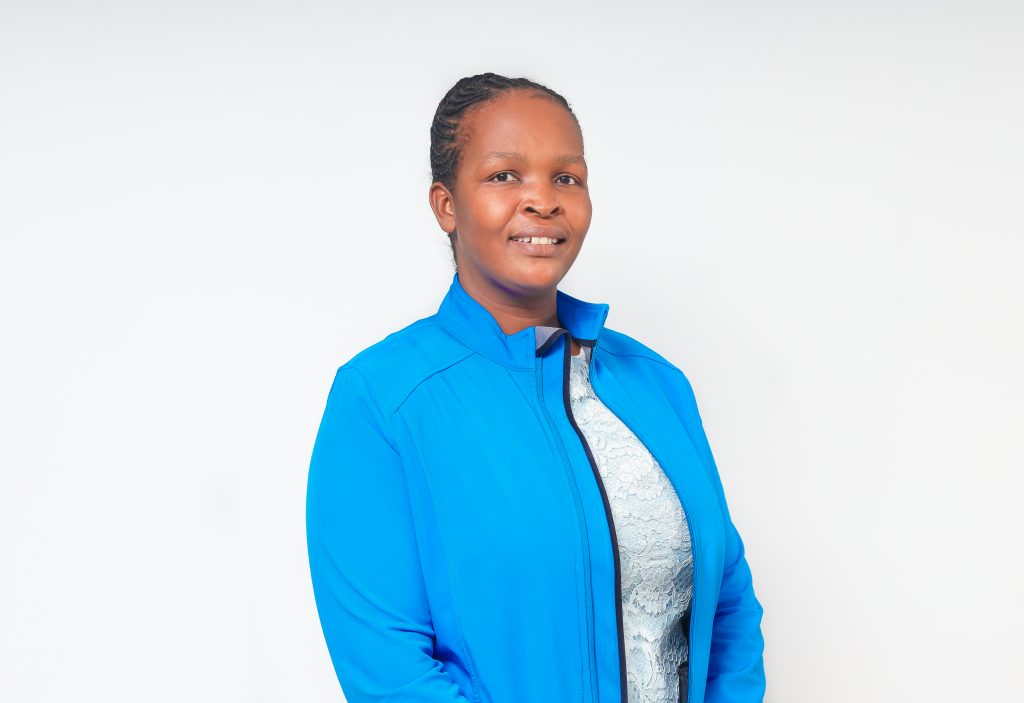The Story of Professor Nontuthuko Rosemary Ntuli
Professor Nontuthuko Rosemary Ntuli, Head of the University of Zululand’s (UNIZULU) Department of Botany, has raised the UNIZULU flag high after recently being awarded Senior Fellowship in the Plant Systems Biology Group.
The senior fellowship is a special programme of the International Centre for Genetic Engineering and Biotechnology (ICGEB) in partnership with South African Department of Science, Technology and Innovation (DSTI) which aims to develop capacity and build synergies with historically disadvantaged institutions (HDIs). In 2025, nine highly motivated scientists from various HDIs in the fields of life sciences, human healthcare and industrial or agricultural biotechnology were selected to partake in the short-term fellowships. Prof Ntuli, who is among the nine, started the fellowship in January and is due to complete it at the end of February.
According to Prof Ntuli, being awarded the senior fellowship validates that “hard work and dedication have excellent rewards in due time”. This achievement means fulfilment to her. She added that she can now attest that regardless of working in an HDI, you can be recognised nationally and internationally for the excellent research that you are doing. It is the impact of one’s research that will earn them respect.
Love for Science
Prof Ntuli’s love for plant science developed when she was selected for a vacation internship at the South African National Biodiversity Institute (SANBI) in Durban while she was in the second year of her undergraduate studies. Moreover, she was inspired by her lecturers in the Department of Botany and personnel at SANBI who were very strict and professional but had calm and loving personalities.
Prof Ntuli believes that one is first inspired by people’s personalities before diving into their speciality. Her research focus on variation among neglected indigenous and traditional edible plants was ignited by their resilience under harsh environmental conditions and their high nutritive and therapeutic value compared to the well-known domesticated plants. She then wanted to research their morphological, physiological, phytochemical, and genetic strategies for adaptation, survival, and productivity under such adverse conditions.
Facing Challenges as a Female Academic
In the academic world, she said that as a female you must work twice as hard as your male counterparts to gain general recognition. Firmness in females is always interpreted as being stiff-necked, rude and lacking respect, which is not necessarily correct.
“Once your title changes after PhD, fellow academics and students normally expect to find a male in your office and interpret you as an assistant in that office. Such a stigma has a lot of implications such as mistrust of your professionalism and the like. I overcome these challenges by accepting myself, not changing to suite other people’s expectation, and striving for excellence in everything,” explained Prof Ntuli.
One of her unique perspectives is to remain resilient and focused until she reaches her goal, disregarding challenges such as criticism, background issues, and feelings of inferiority. “To young, aspiring women scientists, I encourage you to focus on the potential within yourselves and seek encouragement from your peers and mentors. However, pay no attention to the negative comments that are often thrown your way. Yes, those comments can hurt, but they will ultimately make you stronger on your academic journey.”
Advice for Women in Science
She advised young woman in science to have wild dreams in life, as that is where novelty lies. She further said they should accept all challenges as steppingstones in life because through them, they’ll become mature and resourceful to others. Lastly, she urged them to be willing to take constructive advice from anyone regardless of their academic achievements and to be life-long learners.
The professor said she envisions a future where more women hold prominent positions in science, making a positive impact both locally and globally and hope to see them mentoring and supporting the next generation of scientists, regardless of gender. She thinks that her academic community can support growth and development of women in STEM fields by opening several research funding opportunities that will offer bursaries from Honours level upwards and for conducting the actual research.
Prof Ntuli emphasised the central role of spiritual wellbeing in guiding her decisions and priorities in life, stating: “I think that my whole life is founded by my spiritual wellbeing. When I am spiritually sound, I can be able to choose the best out of my priority list and do it. This is all about choosing what is more important and urgent and then ranking them accordingly. Therefore, my strategy is to focus more on important matters and disregard what is urgent but not important,” concluded Prof Ntuli.
– Pamela Mlaba
Picture: Samkele Sokhela



